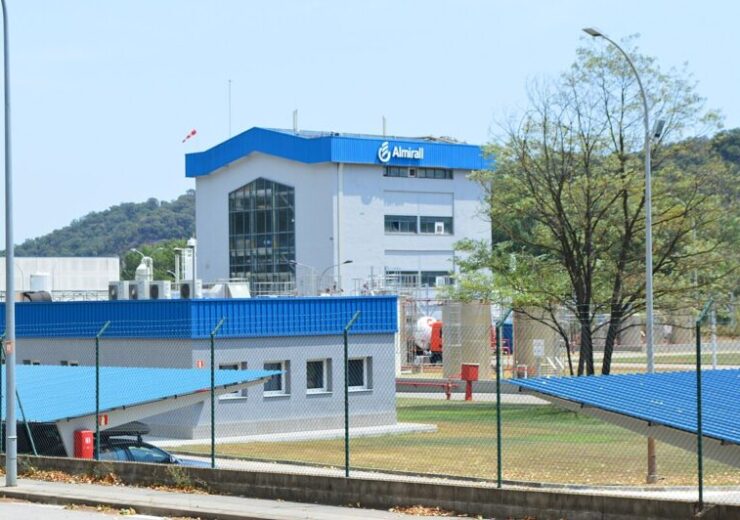Almirall will begin the commercial launch of the drug in Germany, with plans to progressively extend the rollout to additional European countries throughout 2024

Almirall secures approval for Ebglyss from EC for the treatment of atopic dermatitis. (Credit: Auledas from Wikimedia Commons)
Spanish pharmaceutical company Almirall has received the European Commission (EC) approval for Ebglyss (lebrikizumab) to treat adult and adolescent patients with moderate-to-severe atopic dermatitis (AD).
The Commission has authorised Ebglyss to be used in the treatment of 12 years and older adults with a body weight of at least 40kg and who are candidates for systemic therapy.
Almirall will initiate the commercial launch of the drug in Germany, with plans to progressively extend the rollout to additional European countries throughout 2024.
Lebrikizumab is a monoclonal antibody that is designed to bind IL-13 to prevent the formation of the IL-13Rα1/IL-4Rα heterodimer complex and downstream signalling. This helps in stopping the biological effects of IL-13.
Almirall chief medical officer Volker Koscielny said: “The EC approval of lebrikizumab for people suffering with moderate-to-severe AD provides another much-needed treatment option for this challenging disease.
“We are confident that due to its demonstrated short and long-term efficacy, with monthly maintenance dosing and a consistent safety profile, it has the potential to become a first-line biologic treatment.
“This regulatory milestone again highlights Almirall’s commitment to develop innovative treatments that can make a meaningful difference in the lives of people with skin diseases.”
The approval was based on the results of three Phase 3 trials including ADvocate 1 and ADvocate 2, which assessed lebrikizumab as monotherapy.
The third trial called ADhere evaluated lebrikizumab in combination with topical corticosteroids (TCS) in patients with atopic dermatitis.
As per the results, Ebglyss showed early clinical efficacy in monotherapy, reducing the extent of the disease and severity by at least 75% (EASI-75) in nearly six out of 10 patients at week 16.
This was accomplished in nearly 7 of 10 individuals when topical corticosteroids were used in conjunction with them, Almirall said.
Upon receiving a monthly maintenance dose, almost 80% of responders at Week 16 who continued lebrikizumab treatment, either as monotherapy or in combination with TCS, reported sustained skin clearance, relief from itching, and reduced disease severity.
The safety profile of lebrikizumab was also assessed as part of the late-stage clinical development programme.
Throughout the studies, most adverse events had mild to moderate intensity and did not lead to medication discontinuation.
The Spanish pharmaceutical firm has the development and commercialisation rights of lebrikizumab for the treatment of dermatological diseases, including atopic dermatitis in Europe. Lilly holds exclusive rights for the development and commercialisation of the monoclonal antibody in the US and globally, excluding Europe.
